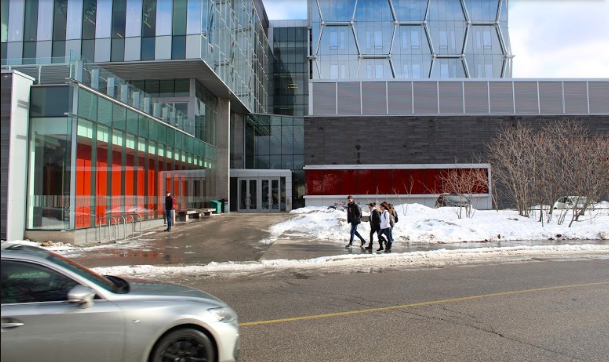
Decision-making bodies, such as governments, churn out policy upon policy in hopes of mitigating any impacts the COVID-19 pandemic may have, including impacts on education.
On Mar.13, Premier Doug Ford announced a state of emergency for the Province of Ontario, triggering drastic courses of action from universities around the province to do their part in preventing the spread of the disease — UW is one of them. While many agree on core policy elements, each university’s approach to the situation is unique. Here is a look at how the COVID-19 response policies of major universities in the province stack up against UW’s.
Following UW’s announcement to close all on-campus activity on Mar. 13, all course content delivery was shifted to an online platform. Courses are defining online learning in their own ways — from live lectures through the Zoom platform, to more niche tools on LEARN, and so on.
Other universities, such as UofT, also shifted their course content online while keeping campus open to provide essential teaching services.
“The University remains open, but with various measures in place to protect the health and safety of community members. We remain committed to the three core activities of teaching, residences and critical research, and the services to support these activities,” UofT said.
Both Laurier and Western moved classes online on Mar. 16 and Mar. 18 respectively, with most students and employees having left campus already.
Outside of the province and across the country in BC, UBC has also transitioned classes online as of Mar. 16 for the remainder of the semester. The university is currently piloting remote working arrangements for faculty, staff, graduate students, Ph.D. candidates, and student employees for an online platform.
Along with core procedures, universities like UofT and Western are taking unique approaches to gain control of the situation. UofT is increasing the frequency of cleaning of high-touch points on their campus, including handrails, door handles, elevator buttons and public counters.
Western communicates with the Middlesex-London Health Unit (MLHU) regularly to adjust and adapt to the growing issues stemming the COVID-19 pandemic
“We are grateful for the time and professionalism of the staff and doctors at the MLHU,” Western said.
In terms of coop placements, UW encourages students to speak with employers and
academic advisors to discuss alternative ways of finishing off work requirements. Students also have the option to end-off their work terms while still earning their co-op credit.
“Students, contact your advisor who will support you. Please note that employers are
still required to complete a performance evaluation – this can be done after a student leaves the work term,” UW said.
McMaster offers a similar policy, with students allowed to leave their coop or internship placement while earning their credit. Like UW, McMaster’s coop recruitment phase for the following term will go forward, albeit via phone or webcam until the end of April.
“For those [students] who have already secured [coop/internship placements], please know that your positions are confirmed unless you are notified otherwise by your co-op and career office and/or your employer,” McMaster said.
Disruptions caused by measures taken in light of the pandemic can have an impact on student grades, or so is the base for various universities when designing their CR (credit rewarded) and NCR (no credit rewarded) policies.
UW has left the desition on whether to implement this policy or not to individual course instructors for the Winter 2020 Term.
Universities such as Laurier and Ryerson have given students the option to select which of the two grade formats they prefer.
“The university has therefore decided to offer undergraduate and graduate students the option to convert final winter 2020 course letter grades to either a “credit” or “withdraw” format, without requiring a petition,” Laurier said.
“Regardless of your grade, you may alternatively choose to record your grade as ‘WD’ (withdrawn), which would mean that you receive no credit for the course, and you would need to make this up in a future term.”
The system is universal in the sense that if certain grades are assigned using the system, the course mark will not contribute to their GPA.
UW decided to go forward with the Spring 2020 program, shifting all courses and exams, including graduate research milestones, online. The term will begin May 11, a week later than originally planned. Both UofT and McMaster have made similar plans for their Spring and Summer terms.
UW states that in order to support its commitment to a quality student learning experience, tuition fees will not change. For this term, however, UW has offered a number of reimbursements to students including a prorate refund to those students who moved out of their residences before Mar. 20.
McMaster and Laurier have made sure to provide students with necessary funds and resources if moving out of residence has proved to an “exceptional circumstance” for them. To acquire these funds, students are required to go through application or interview processes.
Research is another aspect of University functions disrupted by the pandemic. At UW, non-essential research has been suspended, research UW defines as that which stopped would result in significant loss of data and development. Laurier similarly suspended their field research as of Mar. 20.































